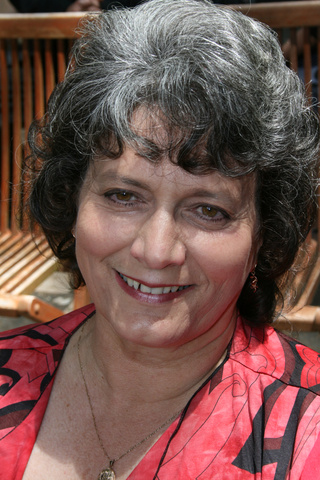
See also: Articles on Music, Hearing Loss, and Hearing Devices
As you read this website, keep in mind the following:
- People with hearing loss can differ in many ways.
- Some information may be more similar to your situation.
- Pick and choose the information most useful for you.
Musicians with Cochlear Implants (CIs)
1, 2
Introduction: Who is this webpage for?
Adults who use CIs, who want to make music as well as listen to music.

Musicians who use CIs may have some different experiences with their devices than CI users who do not have musical training or background. Their motivation to restore musical enjoyment may be greater than for CI users as a general group.
- Musicians have spent countless hours throughout their lives practicing and learning about music, as well as sharing music with others; music can be a part of their personal identities.
- A passion for music can lead musicians to invest considerable time and effort to try and restore musical enjoyment.
This website summarizes information from a number of studies. We have included direct quotes from CI recipients who are musicians. This information describes circumstances that can either help or hinder music enjoyment. This includes:
Factors that affect music-making
Strategies or training programs that can improve music listening and music making
Careful choices about music listening and music making
Unpleasant factors when playing music
Stories shared by CI users about their experiences making music
It is important to remember, however, that not all cochlear implant users are alike. You will see from quotes that we share that cochlear implant users do have different experiences.
- Some trial and error is probably necessary to find out what works for you.
- Your life experiences are unique; your experiences with music will be as well.
- Your own experiences with music will change over time and in different situations.
What are some circumstances that can affect successful music-making?
Different instruments (including the human voice) may be more or less difficult for CI users.
Some instruments provide more visual or vibrotactile feedback on pitch.
Some instruments make sounds within a frequency range that are a better match for residual hearing or hearing device characteristics.
Some instruments have fixed pitches (e.g., piano or percussion); others require ongoing tuning (e.g., violin, guitar, or trumpet).
Singing in tune with others is especially challenging for many cochlear implant users.
Previous music instruction.
Some individuals use their knowledge of music theory or ear training as part of listening practice.
Knowledge of theory exercises, pitch relationships, and ability to read notation can help the listener use their memory of sound to piece together the degraded signal.
The amount of residual hearing or onset of hearing loss can affect music-making.
More residual (acoustic) hearing can help CI users to hear pitch and timbre more accurately.
Some people who grew up with CIs are more satisfied with the sound of music through their CIs because they cannot compare it to more 'normal' sounds.
Some people who grew up listening to music can use their memory of musical sounds to 'piece together' an imperfect musical sound.
A person's individual personality traits can make a difference. Characteristics that tend to help with music-making include:
Persistence and hardiness when faced with a challenge.
Being able to focus on and maintain a positive attitude.
Enjoying new challenges.
Patience and acknowledgment that improvement takes time.
Flexibility and developing new expectations.
These characteristics are sometimes referred to as self-efficacy, or confidence in one's ability to handle challenges as they arise.
Amount of experience with the cochlear implant.
Musicians with CIs often describe the first few months after implantation as most challenging.
This can lead to negative feelings such as frustration, lack of control, and avoiding music altogether.
With increased experience and focused listening practice, music perception can improve over time.
Social support from family, friends and other CI users.
Moral support and practical tips can help CI users to keep going despite set backs
Technology, and how it affects the individual CI user
Changes in programming or device use can affect music perception and enjoyment.
On-going Adjustment to CI Technology:
From Australia: Felicity’s Story

Onset of hearing loss: age 16, deaf by age 28
Device use: Sequential implantation 2002 and 2010
Musical interests: college degree in music; pianist, organist, choirs, taught music and played in restaurants prior to hearing loss
"I had to relearn to enjoy music after receiving my second device. My second implant had never been particularly good for music. As processing technology was improved for speech (such as more auto suppression/compression), the new technology was better for some things, but not others." . . . for more about Felicity’s story, please click this pdf file: Felicity's Music Story
Felicity’s Story
“It takes a lot of resilience to relearn to hear music after getting a CI. Not everyone can do it. In order to achieve what I now have with the piano, I practiced scale and arpeggio for hours and hours...
To learn more about Felicity's story, please click this pdf file: Felicity Talks about Resilience.pdf
To hear Felicity in concert, please click this link: https://youtu.be/Fj8trW-WqF8
Suggested reading:
These articles share input from a unique cohort of CI users who are high-level musicians, and their strategies for improving music enjoyment and music-making.
Click on the title to access the articles:
Click here to review references used in preparation of this website.
1. All images on this website are used under Creative Commons or other licenses or have been created by the website developers.
2. Click here to access the sources of images on this page.